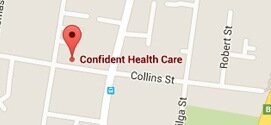We Work For Your Health! Our Team offering personal attention throughout your treatment journey
We treat you carefully Multimedia patient education
Do you have a sleep disorder? Watch these videos to see if you can identify with any of these conditions. Our videos describe various sleep disorders and treatments.
Sleep Study Services
SYMPTOMS
Snoring
Snoring is a sound produced by the vibrations of the tissues in the nose and throat when breathing during sleep.
Tiredness
Tiredness, also called fatigue, is a loss of energy or strength with the need to rest, usually following exhaustion from physical or mental activities.
Morning Headaches
A headache as soon as you wake up or one that wakes you up from sleep is often experienced due to tension, depression and sleep apnoea (cessation of breath during sleep).
Witnessed Apnea
Witnessed apnoea is an apnoea (periods of breath holding during sleep) that is observed by a family member or partner. It is characterised by interruptions in snoring that end with a snort.
Waking Unrefreshed
Feeling sluggish or tired even after 7 to 8 hours of sleep could be a sign of an altered sleep pattern that affects the quality of your sleep. This may be due to poor sleep habits or certain sleep disorders that change the production of necessary hormones secreted during the various stages of sleep.
Poor Memory
Adequate sleep is necessary to process memories, and help you learn and retain new information. Because of this, deprivation of sleep can be a cause for poor memory.
Depression
The relationship between sleep and depressive illness is complex – depression may cause sleep problems and sleep problems may cause or contribute to depressive disorders.
Anxiety About Sleeping
The fear that you might not fall asleep or get enough rest is a type of performance anxiety that can prevent you from sleeping. You may find yourself tossing and turning, anxiously calculating the hours of sleep you need or afraid to sleep because you feel your sleep may get disrupted.

 Menu
Menu









